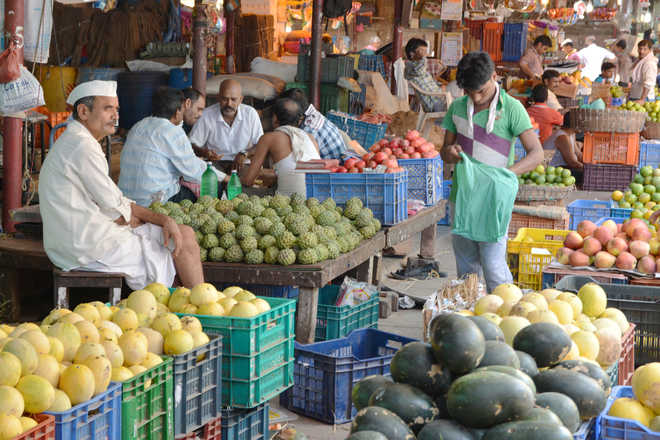
Subsidy should be handed over directly to the poor instead of being given to the PDS shop owner with the instruction that he or she transfer it to the poor
Karan Avtar Singh
This book can be read as a narrative or as a collection of essays in which Kaushik Basu recounts how a worldly philosopher steps out from the Ivy League to the real politik of policy and implementation in an argumentative democracy. It is an intriguing story of how he weathers the initial shock and awe of North Block and makes significant contributions to economic reforms in India.
Basu is one of the rare economists who can communicate fluently: A combination of theoretical rigour and masterful story-telling make the book a thrilling read. In a style that is modest and humorous, reflective of RK Narayan, and with economic insights at par with the best in the world, Basu dissects important debates such as reforming the public distribution system to cure malnutrition in India (chapter six, Food and Poverty) without mincing words, ‘The basic idea is that the subsidy should be handed over directly to the poor household instead of giving it to the PDS shop owner with the instruction that he or she transfer it to the poor. This can be done by handing over food coupons to BPL households, which they can use as money to buy food from any store. The store owner can then take the coupon to any bank and change it back to cash.’
The book begins with personal notes about his appointment as Chief Economic Adviser to the Government of India in 2009, and quickly moves on to the important economic debates concerning modern India. Regarding the appropriateness of standard monetary and fiscal policy (chapters four and five) in an emerging economy like India, he warns: ‘We are living in a more interconnected world than ever before. One must be ready to react to policies in other nations, especially the big and powerful, and in crafting a policy one must be aware that its impact could turn out to be very different from what would happen in a more balkanised economy.’
These complex issues are explained with engaging anecdotes. For example in chapter seven, titled The Nuts and Bolts of the Economy, Basu explains the importance of attention to details in policy design by narrating the example of the investigation of the space shuttle disaster by NASA which found that the cause lay in a defect in the O ringseals, making them susceptible to high temperature and pressure. This defect in turn was traced back to the culture and organisation then prevailing in NASA by the Rogers Commission. Basu uses this analogy to analyse policy for the financial sector in India, noting that ‘The whole financial regulatory system is old and creaking. There are more than 60 separate laws that regulate India’s financial sector.’ And that ‘Finance is a notorious area where the poor and the vulnerable get trapped in contracts they do not fully understand.’ Therefore, he sees the need for ‘A system of prescription for financial products. As in the case of dangerous drugs, this will entail getting a financial professional or authority to sign on a new financial product, like a complex home mortgage, as safe for the person buying it before he or she can sign on to such a product.’
Basu’s most revealing insights are on the subject of law and economics. He begins by warning that, ‘The subject of law and economics has deep conceptual flaws, which handicap economic growth and development, especially in emerging economies, such as India.’ Because in his view, ‘the traditional approach to law and economics is flawed because it is predicated on the assumption that the enforcers of the law will do their job mechanically, in a preprogrammed way. They are treated as being outside the economy or the game of life.’
He analyses the woefully inefficient public distribution system of food in India and proposes: ‘To correct this, the economist’s response is to try to design delivery systems which are fully incentive-compatible with the self-interest of all agents involved, including the ration-shop owners. An incentive-compatible system is one in which each agent is asked to do what is in the agent’s best interest anyway.’ In this regard, he warns that ‘Culture and custom can program us to desist from profit-maximising behaviour in certain situations and to endow us with certain norms of behaviour, for instance, those exhibiting altruism and regard for others. Hence, it is important to understand each society’s social norms and customs in designing policies successfully.’
Comparing Japan and India, and explaining the latest research in behavioural science Basu concludes that, ‘to run an economy effectively, we need a sense of where the people of that economy choose instinctively and contemplatively.’ His most interesting observation as a participant in top-level decision-making is, ‘It is critical for India to disrupt the comforts of the elite if the nation is to do well and achieve inclusive growth. To do this, we have to act both on changing rules of governance and on mindsets. For changing the rules of governance, the nation needs a major administrative reform.’
Unfortunately, Basu does not expand on this interesting thesis in this book, perhaps he has left it for his next publication. However, he does note, ‘A big hindrance to good policy is public opinion. Often, the right policies do not get adopted not because policy makers do not know what these are but out of a fear that people will object to them. It follows that an important task for those at the helm of a nation is to educate the general public so that popular opinion is founded on reason and knowledge, and, by implication, policies chosen are better.’
This is a rare book about economics for the general reader. Read it for fun and take away some useful insights.



























